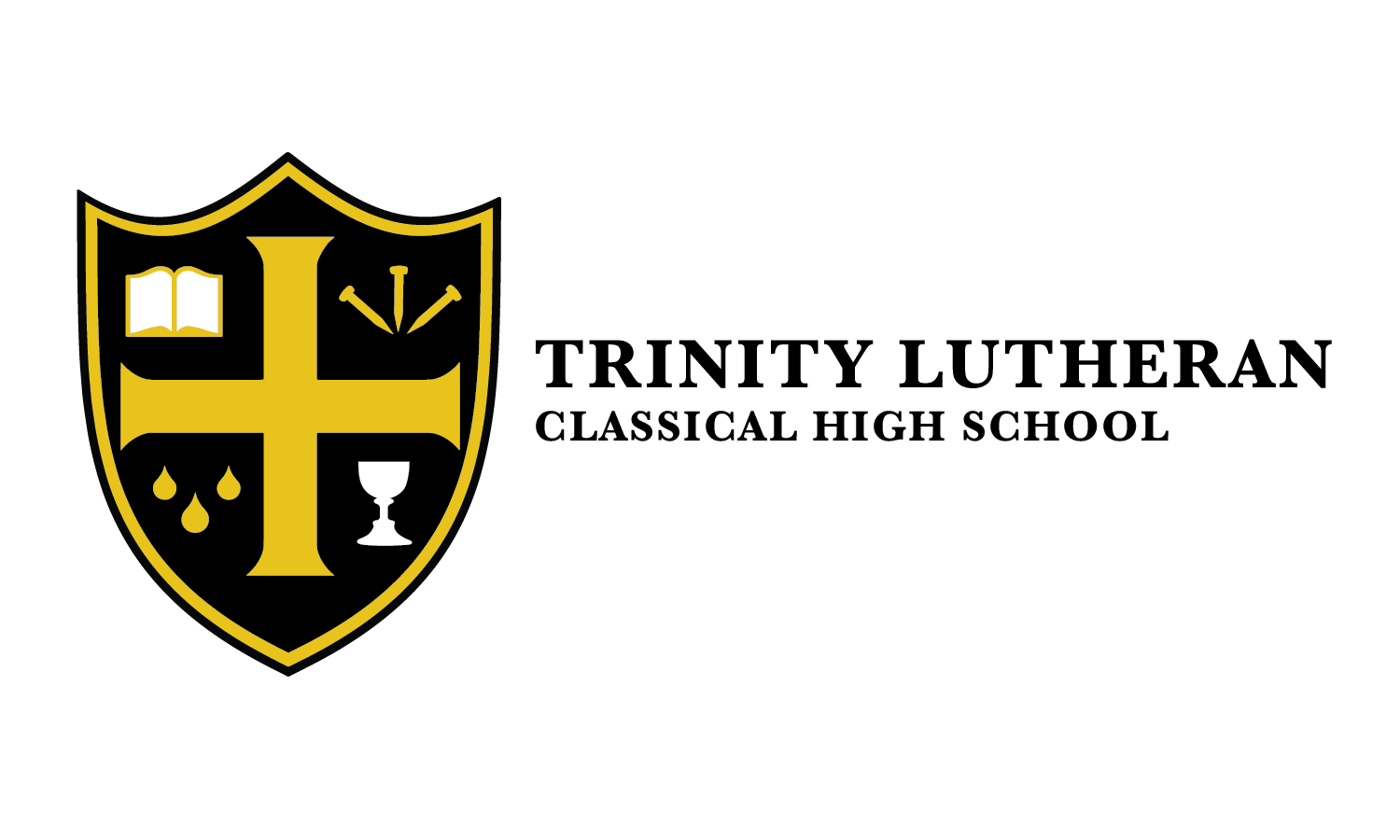
School Curriculum
Trinity Lutheran Classical High School takes an integrated approach to its curriculum. We believe that our God is one, and thus, the universe He has created is interrelated. More than this, we believe that the universe helps reveal
aspects of God to us. Our curriculum reflects the interconnectedness of God and His creation and is purposeful in showing how God has worked in time through some of the greatest human minds to deliver to us knowledge about Him. We
call this natural knowledge of God. While natural knowledge is good and salutary, it is not enough. We can only know God as Creator, as other than us, and as orderly when using natural knowledge. For us to understand God’s love for
His creation and to begin to search the depths of that love, we need revealed knowledge. This comes through the study of the Holy Scriptures, especially in the knowledge of Christ. Jesus’ perfect obedience, atoning death, and resurrection
fully reveal God’s great love for His creation. The cross and empty tomb reinterpret all prior knowledge. Trinity’s curriculum intentionally brings together history, philosophy, literature, arts, sciences, and mathematics, all seen
through the lens of Lutheran theology, to develop various perspectives of God’s nature in order to provide the student with a firm and wide foundation of faith and practice that they can spend the rest of their lives building upon.
We take an ad fontes approach to learning, meaning we return to the original sources and read them together, not with other people’s opinions interjected into them, but so that we can formulate our own thoughts. Our students
learn Latin and Greek, interacting with some of the greatest minds in the Western world in the languages they wrote in. Our curriculum moves chronologically through history while at the same time focusing on topical units of study.
This assists our students in keeping singular topics in mind while studying that topic from theological, philosophical, historical, artistic, and other angles. We do not speak of various classes that may or may not have anything
to do with one another, but rather different perspectives that round out our knowledge of a particular topic, aspects of God, or virtue that we are studying.
Our pedagogical approach melds together the seven liberal arts and the seven practical arts. The liberal arts are grounded in the trivium: grammar, logic, and rhetoric. On this foundation, we build the quadrivium which consists of
arithmetic, music, geometry, and astronomy. In addition to the seven liberal arts, we will incorporate aspects of the seven practical arts. These consist of fabric making, armament, commerce, agriculture, hunting, medicine, and theatrics.
Many of these are placed into the “life science” category in other schools. At Trinity, we believe that all students need these basic skills. Therefore, we do not have electives. All students will receive the same broad knowledge
that will allow them to learn any skill in the future.
Our curriculum is not designed to be a specific college preparatory curriculum, yet it will prepare every student to move on to advanced studies as they so choose. We do not push one singular path (go to college, get a good job, make
a lot of money, retire), but rather focus on our students’ vocations and the pursuit of truth. We assist them in discerning the gifts that God has given them and work with them to see how best to use those gifts to serve Him and
serve their neighbor. This is done first and foremost in encouraging our primary vocations as husbands and wives, as mothers and fathers. The classical Lutheran foundation that Trinity provides ensures that our students are prepared
to lead their families, teaching them about the world that God has created and given them to care for, and most importantly, the handing on of the deposit of faith to the next generation.
Our students can choose between three paths of study: foundational, honors, and distinguished. Foundational students will be challenged through reading selections of original sources, writing both for research and creatively, and being
grounded fully in classical math and sciences. Our honors students must take at least eight of their courses as honors courses. They are required to read full texts and not just excerpts in their honors courses and will have additional
writing assignments and lab assignments. To graduate as distinguished, a student must take all courses as honors courses. The course offerings are linked below along with the reading lists for our courses.


